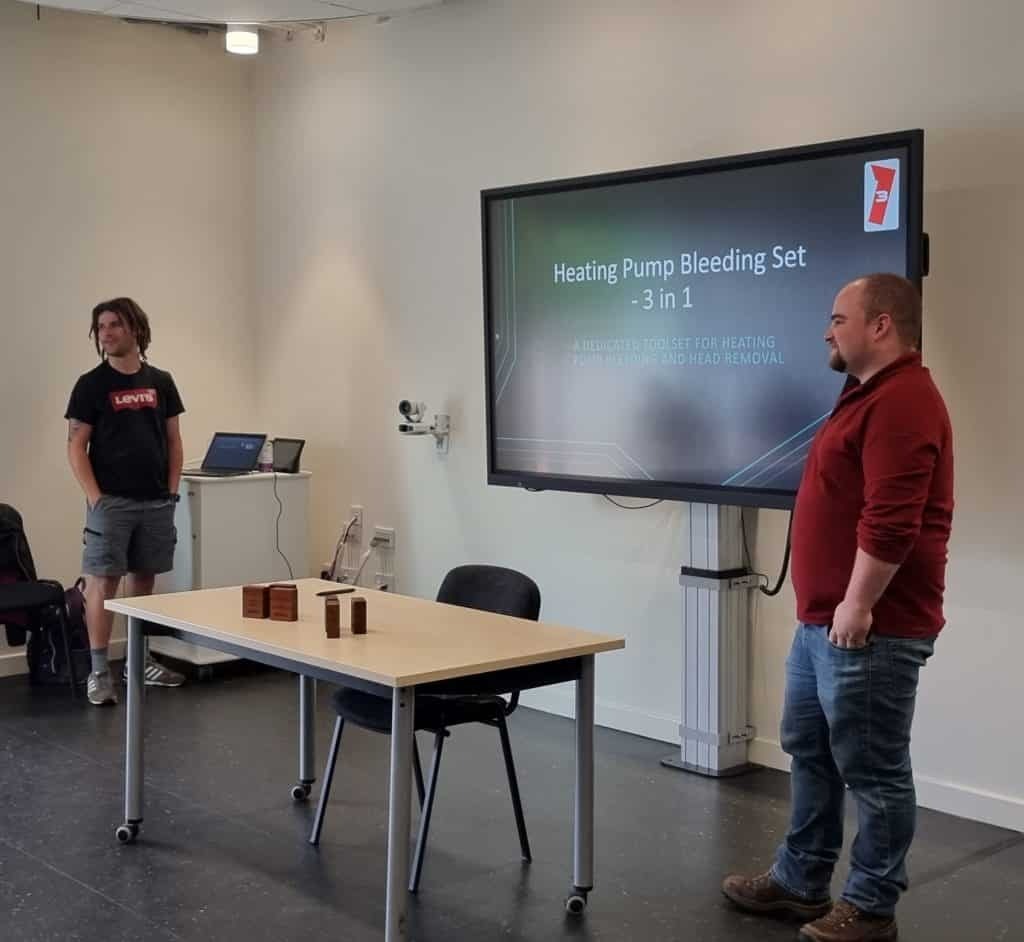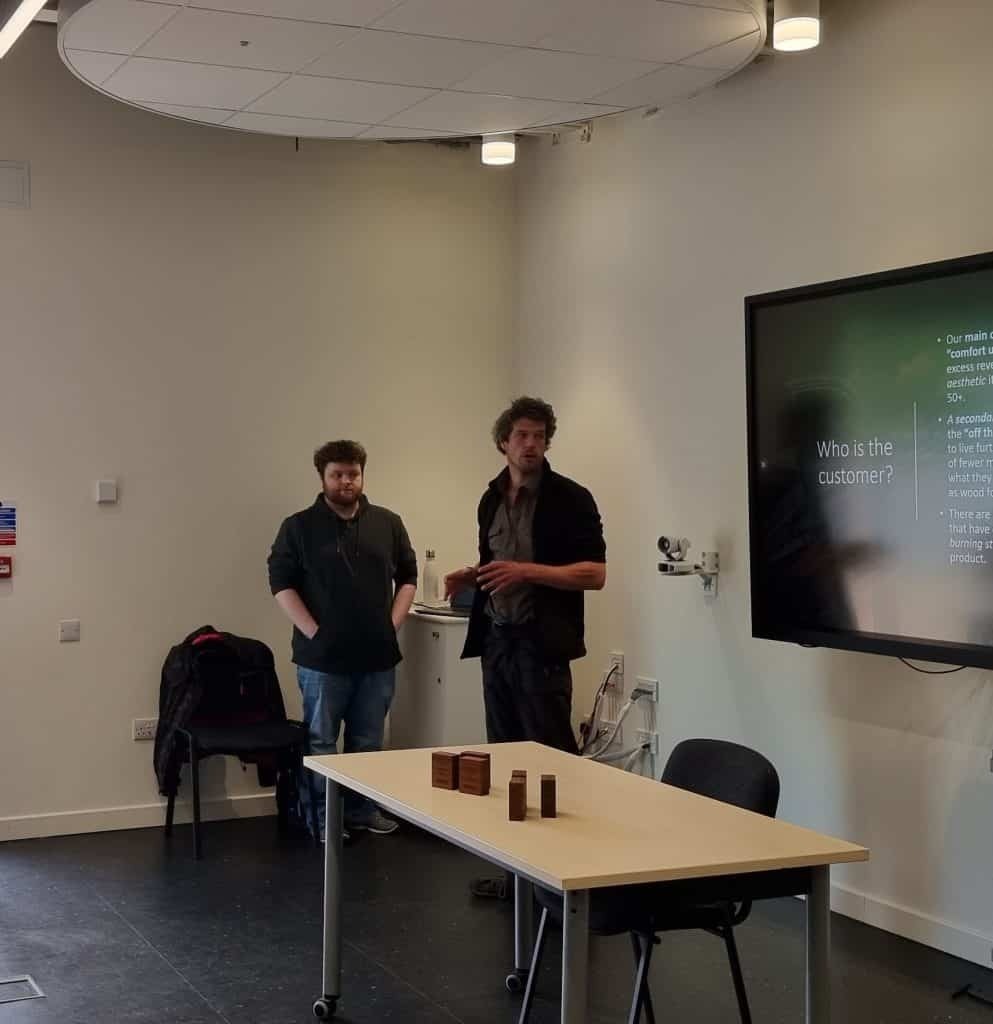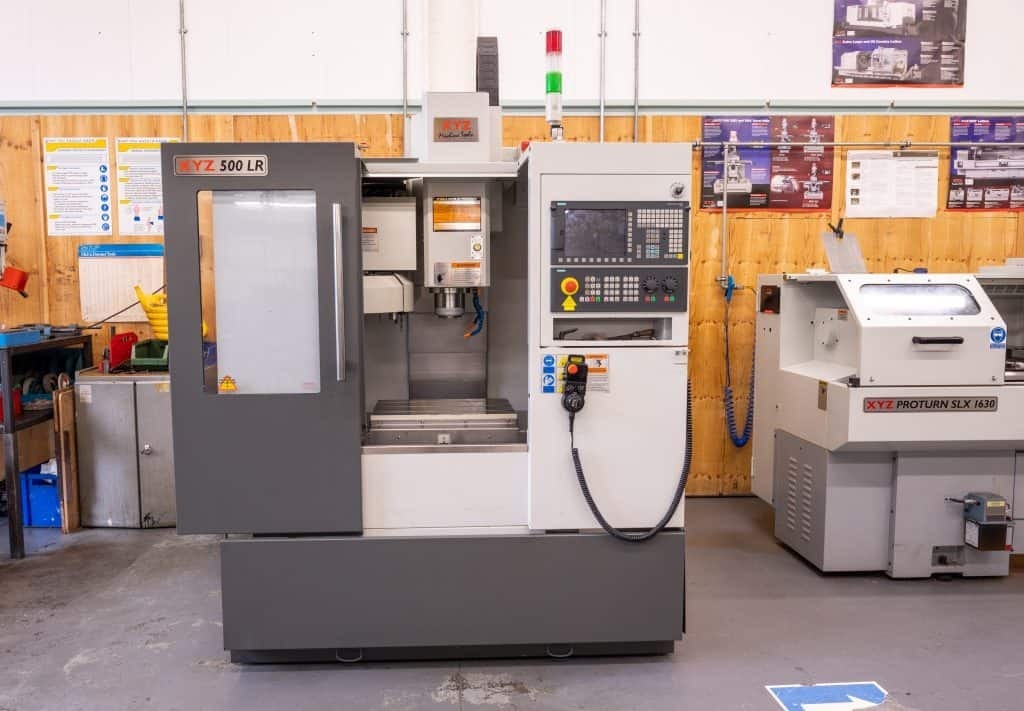Lead the way into connecting the world and find your future in Electrical Engineering.
Get one step ahead and follow your passion towards an exciting diverse industry with our electrical engineering courses. With state-of-the-art equipment and the latest technology, our workshops will allow you to immerse yourself in the electrical engineering environment.
What is Electrical Engineering?
The electrical engineering industry keeps the power moving throughout our society. With a diverse job market, from working on our everyday products to bigger developments such as working on an electrical grid, you will be sought after for this specialised skill.
You can gain a wide range of skills and knowledge to understand how electrical devices work. This also includes testing and inspections of electrical installations, wiring systems and electrical circuits. From smart phones to wind turbines the possibilities are endless.
Whether you’re looking into being self-employed, working for a local company or working for a big corporation, electrical engineering could be the career for you.
Matt Dryden – Electrical Engineering Student
A fantastic course. Well-presented and very informative. I would love to use the ideas from this course to bring a project into reality.

Why study Electrical Engineering
With a varied job market studying Electrical Engineering you can become highly employable in many different areas including IT, manufacturing and construction.
This gives you the opportunity to join the electrical engineering industry at an exciting time learning new practical skills and gaining a highly sought-after qualification.
Get one step ahead in your career and make yourself an irresistible candidate for employers.
Study Electrical Engineering with us to enjoy:
- Access to world-class facilities – our workshops give you the opportunity to get gain knowledge in a safe and welcoming environment.
- Support from highly-trained staff – our lecturing and professional engineering staff will help you learn the academic theory and the practical skills you need to get ahead and succeed.
- Have job security –The world depends on electricity and the people who connect it up or keep it running. With every company and person needing and using electrical equipment this can be a highly secure career path.
- A route to a viable career – with a qualification in electrical engineering, you could go self-employed, work for a big corporation, work for a local company and beyond.
- Real-world skills – our courses are designed to provide you with the skills to be able to put them into practice, gaining real-world practical experience.
Where Electrical Engineering could take you
Take a look where a qualification in Electrical Engineering could take you.
Career Options
As more than 1 in 3 college leavers go on to find employment*, a qualification in Electrical Engineering could lead to the following careers:
- Electrician – provide specialist knowledge and skills to install, service and repair electrical equipment and wiring. They often diagnose problems and have the understanding and education of how to fix the issues. One of their main responsibilities can include deciding where electrical wiring may go. Electricians can work in many different places including individuals’ homes and companies. Average starting salary is £18,000 – £25,000
- Electrical Engineers – provide specialist knowledge to create and design electrical systems. They provide support in maintaining the machinery and equipment of the electrical system. Electrical Engineers also deliver assistance to many different industries with their heating, transportation and distribution of power to make it more sustainable. Average starting salary between £22,000 – £25,000
- Design Engineer – improve and revolutionise products across a wide range of industries. They have good technical skills and knowledge to develop new ideas and systems in manufacturing. Design Engineers can specialise in different areas of electrical engineering giving their expertise to explain solutions in an easy-to-understand manner. Average starting salary is £20,000 – £25,000
- Electronics Engineers – are involved in designing and developing technical plans using computer-aided software. Unlike design engineers, they plan and oversee all aspects of the project including estimation costs, project timescales and work with craftspeople and technicians. They work in many areas which include military defence, medical instruments, smartphones and many more. Average starting salary is £21,000 – £26,000
Onward Study
As more than 1 in 3 college students who graduate with an HNC or above go on to university study*, a qualification in Electrical Engineering could lead you to the following degree options:
- Degree in Electrical and Electronic Engineering
- Degree in Design Engineering
- Degree in Sustainable Engineering
*based on SFC College Leaver Destinations report 19-20
Professional Memberships
Students studying and graduates with a qualification in Electrical Engineering can become a member of the Institution of Engineering and Technology- the professional body for those working in the engineering industry.
Memberships offers you:
- Access to a well-respected network
- Ability to develop through ongoing learning
- Access to insights from the industry
- Opportunities to gain industry and professional recognition
- Develop your career
Course Entry Requirements
Despite being a very popular subject, the entry requirements to study Electrical Engineering can be relatively low. Specific requirements will vary by course, but we offer courses where no formal academic qualifications are required. For them, all we ask for is:
- You demonstrate a keen interest in studying Electrical Engineering with us
- You attend an entry interview and present yourself well
- You have a positive learner reference – if you’ve studied with us before.
For courses with formal academic entry requirements, we offer a number of routes in – from studying the qualifications that allow you to progress to offering alternative options.
All Courses
Choose the course for you and click through to find out more and apply:
-
Electrical Engineering HNC @ SCQF Level 7
-
Electrical Engineering HND @ SCQF Level 8
-
Electrical Engineering NC @ SCQF Level 6
-
Introduction to Engineering and Renewable Energy (NQ) @ SCQF Level 4
-
Mechanical Engineering HNC @ SCQF Level 7
-
Natural Power Wind Turbine Technician Trainee NC @ SCQF Level 6
-
Pre-Apprenticeship Electrical Engineering (NQ) @ SCQF Level 5
-
BPEC Heat Pump Systems
-
BPEC Safe Isolation
-
C & G 2382-22: 18th Edition Wiring Regulations (2nd Amendment)
-
City & Guilds 2377-77 Level 3 Award in the In-Service Inspection and Testing of Electrical Equipment (PAT)
-
City & Guilds 2391-52 Award In Inspection & Testing
-
City & Guilds 2921-34 Design and Installation of Domestic and Small Commercial Electric Vehicle Charging Installations
-
Electric Energy Storage Systems (EESS) (BPEC)
-
ELECTRICAL INSPECTION & TESTING REFRESHER
-
GLOBAL WIND ORGANISATION (GWO): BASIC TECHNICAL TRAINING
-
IMI L2 Award In Electric/Hybrid Vehicle Routine Maintenance Activities & L3 System Repair & Replacement (Combined)
-
Solar Photovoltaic Systems (BPEC)
-
C & G 2382-22: 18th Edition Wiring Regulations (2nd Amendment)
-
City & Guilds 2391-52 Award In Inspection & Testing
-
City & Guilds 2921-34 Design and Installation of Domestic and Small Commercial Electric Vehicle Charging Installations
-
Electric Energy Storage Systems (EESS) (BPEC)
-
Electrical Engineering HNC @ SCQF Level 7
-
Solar Photovoltaic Systems (BPEC)
No courses currently listed
*Courses listed above are available as at time of publishing. Availability is subject to demand and some courses may stop accepting applications or be withdrawn at any time.
Lewis Kennington – Electrical Engineering Student
An Informative and engaging course that challenged our team.

Learning Environment
Our industry standard workshops give you the opportunity to thrive in an Electrical Engineering environment developing the skills and knowledge for your future career or further education.

With support from our qualified staff, they will help you learn about the different roles and the academic theory giving you the opportunity to succeed in your studies.
